Full Program
AAI Program Committee: Back to School: A Review of Four Fast-Moving Fields
Chairs:
Wendy L. Havran, Scripps Res. Inst; AAI Program Committee Chair
Dorian B. McGavern, NINDS, NIH
Speakers:
- Ellen V. Rothenberg, California Inst. of Technol., Transcriptional and epigenetic mechanisms regulating lymphocyte fate
- Kathy D. McCoy, Univ. of Calgary, Canada, The influence of the microbiome on systemic immunity
- William R. Schief, Scripps Res. Inst., Germline-targeting vaccine design for HIV
- Dorian B. McGavern, NINDS, NIH, Imaging the immune response
This workshop intends to bring a broad audience up-to-date on a few emerging or rapidly changing fields or areas of technological innovation. Expert lecturers will provide an overview of each trending topic with an emphasis on communicating big picture concepts.
International Opportunities in Science
Chair:
Courtney R. Pinard, Education and Awards Dept., AAI
Panelists:
- John E. Connolly, Inst. of Molecular and Cell Biol., Singapore
- Maziar Divangahi, McGill Univ., Montréal, Canada
- Chen Dong, Tsinghua Univ., Beijing, China
- Adrian C. Hayday, King’s Col. London, U.K.
- Hans-Martin Jack, Univ. of Erlangen-Nürnberg, Erlangen, Germany
- Betty Wu-Hsieh, College of Medicine, Natl. Taiwan Univ., Taipei, Taiwan
Working as a scientist outside of the U.S. requires curiosity, adaptability, and open-mindedness, which are valuable qualities important for success in any career. Given the international reach of science, this new session will help immunologists learn about opportunities to gain professional experience beyond the U.S. This panel features scientists employed at academic or research institutions around the globe. Panelists will discuss the postdoctoral fellowship and grant application process; the benefits of international training and employment; the challenges in finding science-related jobs outside of the U.S.; and the process of moving your lab to another country. This session is open to anyone.
Block Symposia
Cell Subset and Pathway Dysregulation in Human Disease I
Immune Regulation at Mucosal Surfaces
Molecular Cascades and Host Immunity
NK and CD8 T Cell Activity during Virus Infection
Novel Strategies for Cancer Vaccines
Technological Innovations I
Triggers and Tolerance in Autoimmunity
New Member Reception (By Invitation Only)
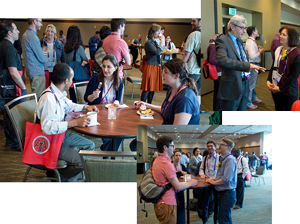 Sponsored by the AAI Membership Committee
Sponsored by the AAI Membership Committee
(Badge and invitation required)
AAI welcomes new Regular, Associate, and Postdoctoral Fellow members to meet each other at a relaxed gathering. Members of the AAI Membership Committee, AAI President Arlene Sharpe, and fellow Council members will join new members for casual conversation and light refreshments.
AAI President’s Address
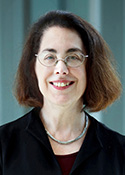
Arlene H. Sharpe
Harvard Med. Sch., AAI President
Second signals make all the difference
Vijay K. Kuchroo, Brigham and Women’s Hosp., Harvard Med. Sch.
Introduction
AAI Lifetime Achievement Award Presentation
Chair:
Arlene H. Sharpe, Harvard Med. Sch., AAI President
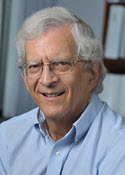 Award Recipient:
Award Recipient:
Richard J. Hodes, NIA, NIH
AAI President Arlene H. Sharpe will introduce the awardee and present the award prior to the start of the President’s Address.
The AAI Lifetime Achievement Award is the highest honor bestowed by the AAI Council upon an AAI member. This award recognizes a deserving member for a career of scientific achievement and for contributions to AAI and fellow immunologists.
Opening Night Welcome Reception
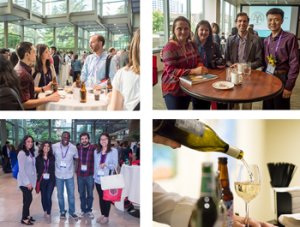 Following the President’s Address, exit the Ballroom for the Opening Night Welcome Reception. Connect with friends, make new acquaintances, plan your week, and enjoy the beautiful view of D.C. Remember to bring the complimentary drink ticket included with your meeting badge. Registered attendees only.
Following the President’s Address, exit the Ballroom for the Opening Night Welcome Reception. Connect with friends, make new acquaintances, plan your week, and enjoy the beautiful view of D.C. Remember to bring the complimentary drink ticket included with your meeting badge. Registered attendees only.
AAI Public Policy Fellows Program Dinner (By Invitation Only)
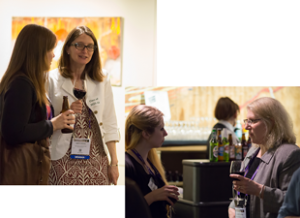 Sponsored by the AAI Committee on Public Affairs
Sponsored by the AAI Committee on Public Affairs
AAI welcomes the 2017-18 AAI Public Policy Fellows to this first meeting with members of the AAI Committee on Public Affairs and the AAI Public Affairs staff. Discussion topics will cover the upcoming program year, including the Fellows’ 2018 Capitol Hill visit to advocate for increased support for biomedical research and the National Institutes of Health.
Major Symposium A: Mechanism-Guided Therapy of Immunologic Diseases
Chairs:
Gerald T. Nepom, Benaroya Res. Inst.
Qizhi Tang, Univ. of California, San Francisco
Speakers:
- John D. Rioux, Univ. de Montréal and Montreal Heart Inst., Canada, Genetically-guided development of clinical assays for predicting response to biologic therapies
- Virginia Pascual, Baylor Inst. for Immunol. Res., Genomic approaches to guide therapeutic decisions in autoimmune diseases
- John E. Harris, Univ. of Massachusetts Med. Sch., Translational research in vitiligo: gaining insight into mechanisms of organ-specific autoimmunity
- Amit Bar-Or, Univ. of Pennsylvania, Targeting B cell cytokine networks in T cell-mediated autoimmune disease
- Gerald T. Nepom, Benaroya Res. Inst., Therapeutic modulation of effector T cells in autoimmunity
- Qizhi Tang, Univ. of California, San Francisco, Treg cell therapy in autoimmune diseases and transplantation
Major Symposium B: Immune Regulation of Adipose Tissue Homeostasis
Chairs:
Vishwa Deep Dixit, Yale Sch. of Med.
Alyssa H. Hasty, Vanderbilt Univ.
Speakers:
- Alyssa H. Hasty, Vanderbilt Univ., A novel role for resident adipose tissue macrophages in iron handling
- David Artis, Weill Cornell Med. Coll., Regulation of immunity and inflammation
- Lydia Lynch, Harvard Med. Sch., Immunometabolic crosstalk of the innate immune system in adipose tissue
- Vishwa Deep Dixit, Yale Sch. of Med., Harnessing immune-metabolic interactions to enhance healthspan
- Ye Zheng, Salk Inst. for Biol. Sci., Adipose tissue-resident Tregs in age-associated insulin resistance
- Jorge Caamaño, Univ. of Birmingham, United Kingdom, Fat associated lymphoid clusters in inflammation and immune responses
Canadian Society for Immunology (CSI) Symposium: Dendritic Cells and Macrophages in Health and Disease: Remembering Cheolho Cheong
Chairs:
Clinton S. Robbins, Peter Munk Cardiac Ctr., Toronto Gen. Res. Inst., Canada
Myron I. Cybulsky, Peter Munk Cardiac Ctr., Toronto Gen. Res. Inst., Canada
Speakers:
- Maziar Divangahi, McGill Univ., Canada, Macrophages in pulmonary infectious diseases
- Filip K. Swirski, Massachusetts Gen. Hosp., Harvard Med. Sch., Unleashing inflammation in cardiovascular disease
- Jaehoon Choi, Hanyang Univ., Korea, Dissecting the function of dendritic cells in atherosclerosis
- Myron I. Cybulsky, Peter Munk Cardiac Ctr., Toronto Gen. Res. Inst., Canada, Homeostatic and pathogenic functions of arterial intimal dendritic cells
- Slava Epelman, Peter Munk Cardiac Ctr., Toronto Gen. Res. Inst., Canada, Defining cardiac dendritic cell origins and functions
Society for Immunotherapy of Cancer (SITC) Symposium: Mechanisms of Resistance to Immunotherapy
Chairs:
Michael B. Atkins, Georgetown Lombardi Comprehensive Cancer Ctr.
Mario Sznol, Yale Sch. of Med.
Speakers:
- Steven A. Rosenberg, NCI, NIH, Characterizing tumor-specific T cell responses in tumors with low mutation rates
- Roger S. Lo, Univ. of California, Los Angeles, Pathway and mutation analyses in melanoma tumors resistant to anti-PD-1
- Ira Mellman, Genentech, Insights into mechanisms of immune cell antagonism by PD-1 engagement in animal models
- Louis M. Weiner, Georgetown Lombardi Comprehensive Cancer Ctr., Use of shRNA screens to identify novel immune checkpoints
- Carla V. Rothlin, Yale Univ., Role of receptor tyrosine kinases in function of intratumoral monocytes and macrophages
- Nicholas P. Restifo, NCI, NIH, Role of oxygen in immunosuppression
Block Symposia
8:00 AM – 10:00 AM
CD8 T Cell Responses during Acute and Chronic Virus Infections
Cytokines Shape Host Immune Responses to Infection
Inflammation and Infection at Mucosal Surfaces
Leukocyte Adhesion and Migration
Lymphocyte Development and Homeostasis
Regulatory Mechanisms in Aging and Tumor Responses
10:15 AM – 12:15 PM
Inflammation and Microbiota in Tumors
Mast Cells and Basophils
Novel Approaches for Enhancing Immunity against Viral and Bacterial Infection
Regulation of Humoral Responses
12:30 PM – 2:30 PM
Antibody-based Cancer Therapeutics
Cytokines/Chemokines and the Innate Immune Response to Viruses
Innate Immune Sensing and Signaling
Regional Immunity and Mucosal Inflammation
Technological Innovations II
3:45 PM – 5:45 PM
B Cells, Antibodies, and the Adaptive Immune Response to Viruses
IFN and Chemokine Signals in Tumors
Lymphocyte Activation and Differentiation
MHC I, MHC II, CD1: Antigen Processing and Presentation
Regulation of Cell-mediated Host Defense
How to Convert Your CV into a Resumé
Chair:
Mary T. Litzinger, Education and Awards Dept., AAI
Speaker:
- Derek Haseltine, Director, Career Development Center, Baylor Col. of Med.
For anyone seeking a job outside of academia, how you present yourself on paper is critical. A well prepared resumé can make all the difference in securing that interview. The focus of this session will be on the important elements of a resumé, the differences between a resumé and the standard academic curriculum vitae, and the information needed to make a good impression. In this special career development session, attendees will be instructed in how to transform their CVs into professional resumés. Small breakout sessions for individual consulting will follow from 10:30 AM to 12:30 PM in Room 302. Bring your CV!
AAI Publications Committee: Publish or Perish? Pearls and Perils in Writing and Reviewing Scientific Manuscripts
Chairs:
Bethany B. Moore, Univ. of Michigan; AAI Publications Committee Chair
Pamela J. Fink, Univ. of Washington Sch. of Med.; Editor-in-Chief, The Journal of Immunology
Speakers:
- Bethany B. Moore, Univ. of Michigan, Ready, set, write…maintaining momentum in manuscript preparation
- Kristin A. Hogquist, Univ. of Minnesota, Responding to reviewers: what you want to say and what you should say
- Michael P. Cancro, Univ. of Pennsylvania Sch. of Med., How to review scientific manuscripts: the forest or the trees?
- Pamela J. Fink, Univ. of Washington Sch. of Med., Ethical Issues in scientific publishing: just because you CAN doesn’t mean you SHOULD
Your data are good and now it’s time to write the manuscript. What steps are essential to tell the story clearly and convincingly? What is the best way to present your data? Once the manuscript is reviewed, how should you respond to the reviewer comments? What ethical pitfalls should you be aware of in order to avoid possible problems? If you would like to become a reviewer, what do you need to know about how to review a manuscript? These and other questions will be addressed in this session sponsored by the AAI Publications Committee.
American Society of Gene and Cell Therapy (ASGCT) Symposium: Extending Genetically Modified T cells to CD19-Negative Hematologic Malignancies
Chairs:
Catherine M. Bollard, Children’s Natl. Med. Ctr., George Washington Univ.
Saar Gill, Univ. of Pennsylvania
Speakers:
- Catherine M. Bollard, Children’s Natl. Med. Ctr., George Washington Univ., Overcoming TGF-β as an immune evasion strategy
- Terry J. Fry, NCI, NIH, Potential for improving durability of CAR-induced remissions
- Saar Gill, Univ. of Pennsylvania, CAR T cells for myeloid malignancies
- Maksim Mamonkin, Baylor Col. of Med., Targeting T cell malignancies with CAR T cells
Chinese Society of Immunology (CSI) Symposium: Host Responses to Infection and Tumor
Chairs:
Zhigang Tian, Univ. of Sci. and Technol. of China, China
Yang-Xin Fu, Univ. of Texas Southwestern Med. Ctr.
Speakers:
- Zhigang Tian, Univ. of Sci. and Technol. of China, China, Retrospective overview of 10 years of CSI guest symposium
- Cuihua Liu, CAS Key Lab. of Pathogenic Microbiol. and Immunol., Inst. of Microbiol., Chinese Acad. of Sci., China, Regulation of host cellular functions by M. tuberculosis secreted effector proteins
- Xiaoyu Hu, Inst. for Immunol., Tsinghua Univ., China, Regulation of inflammation by Notch signaling
- Chenqi Xu, Inst. of Biochem. and Cell Biol., Chinese Acad. of Sci., China, Membrane lipids and T cell signaling
- Lilin Ye, Inst. of Immunol., Third Military Med. Univ., China, T cells in B cell follicle
- Lai Wei, Sun Yat-sen Univ., China, Epigenetic therapy for inflammatory disease targeting helper T cells
German Society for Immunology (DGfI) Symposium: T Cell Subsets
Chair:
Michael Lohoff, Philipps Univ. Marburg, Germany
Speakers:
- Michael Lohoff, Philipps Univ. Marburg, Germany, Introduction of the DGfI
- Alexander Scheffold, Charité Berlin, Germany, Antigen specificity of human Foxp3 regulatory T cells in mucosal tolerance
- Tobias Bopp, Univ. Mainz, Germany, Context- and tissue-specific regulation of immunity and tolerance by protein kinase CK2
- Dietmar Zehn, Tech. Univ. München, Germany, T cell subset diversification in chronic infections
- Magdalena Huber, Philipps Univ. Marburg, Germany, The role of IRF1 and IRF4 in T cell differentiation
- Christina Zielinski, Tech. Univ. München, Germany, Regulation of human T cell responses by tonicity signals
Immunology Teaching Interest Group
Sponsored by the AAI Education Committee
Chairs:
Julie M. Jameson, California State Univ., San Marcos
David W. Mullins, Dartmouth Col.
Panelists:
- Manoj K. Mishra, Alabama State Univ., Engaging undergraduate students in immunology through problem-based learning modules
- David W. Mullins, Dartmouth Col., Digital communication and social media to connect with the modern student
- Keith E. Garrison, St. Mary’s Col. of California, Undergraduate clinical lab simulation using ELISA
- Devavani Chatterjea, Macalester Col., Discerning, crafting and telling immunological stories: a semester-long scaffolded writing project for beginning immunologists
- Edith Porter, California State Univ., Los Angeles, Teaching students how to formulate research questions: adaptation of the question formulation technique to the upper division immunology curriculum
Are you looking for new ideas or strategies to enliven and improve your teaching? If so, please join us for this special interest group which will focus on strategies that instructors can use to successfully convey immunology concepts to students at the undergraduate and graduate level. Topics will include the applications of problem-based learning, the use of digital communication and social media in modern teaching, strategies for teaching laboratory methods, and more. The session will end with structured breakout discussion groups for undergraduate and graduate/medical school teaching. Undergraduate teaching topics for discussion will include: developing a teaching philosophy; use of take-home vs. in-class tests; developing a course syllabus; and selection of effective textbooks. Breakout discussions for medical school teaching will cover optimal use of handouts and notes; spaced learning and testing effect; preparing students for the U.S. Medical Licensing Examination (USMLE); writing USMLE-style exams and assessments; question banks for test questions; and the flipped classroom in medical education. Current educators, new faculty, and trainees with an interest in teaching are welcome.
Capitol Hill Day Training (By Invitation Only)
This session will prepare those who have registered for, and been invited, to visit Capitol Hill with AAI on Tuesday, May 16. Invited participants must attend this session or the session held on Sunday, May 14, from 1:30 PM – 2:30 PM.
AAI Minority Affairs Committee: Careers Roundtable and Speed Networking Session
Chair:
Cherié L. Butts, Biogen; AAI Minority Affairs Committee Chair
Networking skills have never been more crucial to ensure success for early/mid-career scientists, including those traditionally under-represented in biomedical research. At the roundtable, take advantage of the opportunity to meet in small-group format with accomplished, senior immunologists to hear how they have handled the career challenges you now face and learn what they believe will work for you today. Then practice networking in a relaxed environment offering a structured networking exercise and personalized feedback on communicating your scientific interests/objectives most effectively. Scientists and trainees of all backgrounds are encouraged to attend! Registration Fee: $25 (Includes lunch plus coffee during networking hour.)
Discussion topics and table leaders:
- Grad student: finding a mentor, setting sights on postdoc training
- Table Leaders: Claudia Jakubzick, Natl. Jewish Hlth.; Luis A. Sanchez-Perez, Duke Univ.; Tonya Webb, Univ. of Maryland; Harlan Jones, Univ. of North Texas Hlth. Sci. Ctr.
- Postdoc: finding a mentor, setting sights on a faculty position
- Table Leaders: Mireia Guerau-de-Arellano, Ohio State Univ.; Charlotte Vines, Univ. of Texas, El Paso; Eduardo Davila, Univ. of Maryland Greenebaum Cancer Ctr.
- Junior Faculty: preparing for promotion and tenure
- Table Leaders: Robert J. Binder, Univ. of Pittsburgh; Floyd Wormley, Univ. of Texas, San Antonio
- — NEW — Mid-Career Faculty: creative strategies for maintaining momentum in funding, research, people management
- Table Leaders: Arturo Casadevall, Johns Hopkins Bloomberg Sch. of Publ. Hlth.; Avery August, Cornell Univ. Col. of Vet. Med.; Prosper N. Boyaka, Ohio State Univ.; Tyler J. Curiel, Univ. of Texas Hlth. Sci. Ctr., San Antonio
- Academia or Industry: how to decide (or switch sides)
- Table Leaders: Jonathan A. Deane, GNF/Novartis; Robert Balderas, BD Biosciences; Margaret Bynoe, Cornell Univ. Col. of Vet. Med.
- Government Agency Careers: CDC, FDA, NIH
- Table Leaders: Marta Catalfamo, Georgetown Univ.; Charles Egwuagu, NEI, NIH
- Non-Bench-Research Science Careers – e.g., scientific publishing; entrepreneurship; intellectual property/patent law
- Table Leaders: James W. Lillard, Jr., Morehouse Sch. of Med. and JYANT Technologies, Inc.; Jacques Deguine, Cell Press; Susan C. Wolski, U.S. Patent and Trademark Office
AAI Veterinary Immunology Committee and American Association of Veterinary Immunologists (AAVI) : Tumor Immunotherapy in Comparative Oncology
Chairs:
Crystal L. Loving, Natl. Animal Dis. Ctr., ARS, USDA; AAI Veterinary Immunology Committee Chair
Radhey Kaushik, South Dakota State Univ.
Speakers:
- Nicola J. Mason, Univ. of Pennsylvania Sch. of Vet. Med., CAR T cell therapy in dogs with hematological malignancies
- Lawrence B. Schook, Univ. of Illinois Col. of Agricultural, Consumer and Envrn. Sci., The Oncopig Cancer Model (OCM): A platform for transitional, translational and transformative advances in cancer research
- David M. Vail, Univ. of Wisconsin Sch. of Vet. Med., Defining the value of comparative cancer immunotherapy clinical trials in companion species
- Jaime F. Modiano, Univ. of Minnesota Col. of Vet. Med., Opportunities to accelerate translation of cancer immunotherapy through companion animal trials
This symposium will feature approaches for cancer immunotherapy relevant to both human and veterinary health, with an emphasis on immune system recognition and activation. Various active and passive immunotherapy approaches will be presented, highlighting the ability of antibodies and immune cells to destroy tumor cells while sparing healthy cells. The symposium will highlight recent advances in comparative tumor immunology that demonstrate translational cohesion and support the current “One Health” approach to identify scientific commonalities and medical treatments that benefit both humans and animals.
National Institute of Allergy and Infectious Diseases (NIAID) Symposium: The New Frontier: Diverse Mouse Models for the Advancement of Human Immunology
Chairs:
Sonia Sharma, La Jolla Inst. for Allergy and Immunol.
Kentner Singleton, NIAID, NIH
Speakers:
- David Masopust, Univ. of Minnesota Med. Sch., Immunology in a dirty mouse model
- Sonia Sharma, La Jolla Inst. for Allergy and Immunol., Adapting the CRISPR/Cas9 screening approach to primary immune cells and in vivo models of immunological disease
- Jeffrey A. Frelinger, Univ. of Arizona, Using the Collaborative Cross to address complex genetics in immunology
- Bruce Beutler, Univ. of Texas Southwestern Med. Ctr., The new forward genetics
Japanese Society for Immunology (JSI) Symposium: Innate and Adaptive Helper Cells in Metabolism and Infection
Chairs:
Hiroshi Takayanagi, Univ. of Tokyo, Japan
Kasuyo Moro, RIKEN Ctr. for Integrative Med. Sci., Japan
Speakers:
- Kasuyo Moro, RIKEN Ctr. for Integrative Med. Sci., Japan, Discovery of group 2 innnate lymphoid cells
- Norifumi Iijima, Natl. Inst. of Biomed. Innovation, Health, and Nutrition, Japan, Peripheral immune protection against mucosal virus infection
- Kazuo Okamoto, Univ. of Tokyo, Japan, IL-17-producing T cells in the autoimmune and bone diseases
- Yusuke Endo, Chiba Univ., Japan, Elucidation of the role of fatty acid metabolism in Th cell differentiation under obese conditions
- Hiroshi Takayanagi, Univ. of Tokyo, Japan, Osteoimmunology and autoimmune diseases
AAI Distinguished Service Award Presentation
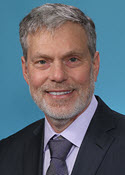 Award Recipient:
Award Recipient:
Eugene M. Oltz, Washington Univ. Sch. of Med.
AAI Executive Director M. Michele Hogan will introduce the awardee and present the award during the AAI Business Meeting.
The AAI Distinguished Service Award recognizes an individual for outstanding service to AAI and the immunology community. Dr. Oltz is honored for his outstanding service as member and chair of the AAI Publications Committee, 2012-2016.
AAI Business Meeting and Awards Presentations
Chair:
M. Michele Hogan, AAI, Executive Director
AAI reports on the “state of the association” to its members at every AAI annual meeting. Members will hear from the Executive Director, the Secretary-Treasurer, the Editors-in-Chief of AAI journals (The Journal of Immunology and ImmunoHorizons), and the Chair of the Committee on Public Affairs on the financial standing of AAI and other matters of importance to the membership. Selected 2017 AAI awards will also be presented during this session.
AAI Distinguished Service Award

For outstanding service to AAI and the immunology community as member and chair of the AAI Publications Committee, 2012-2016
Eugene M. Oltz, Ph.D., Washington Univ. Sch. of Med.
AAI annually provides more than 700 AAI meeting travel awards and grants to recognize the promise and promote the professional development of investigators of all career stages. Travel award and grant presentations and acknowledgments at the business meeting will include:
Lustgarten-Thermo Fisher Scientific Memorial Award
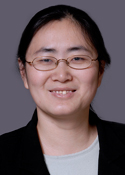
To advance the career of a mid-career scientist who attends the AAI annual meeting and presents an outstanding abstract specifically in the area of immune regulation
Jing H. Wang, M.D., Ph.D., Associate Professor, Univ. of Colorado Anschutz Med. Campus
Chambers-Thermo Fisher Scientific Memorial Award
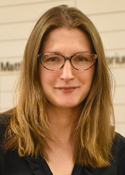
To advance the career of an early-career scientist who attends the AAI annual meeting and presents an outstanding abstract specifically in the area of cancer biology
Erica L. Stone, Ph.D., Assistant Professor, Wistar Inst.
Lefrançois-BioLegend Memorial Award
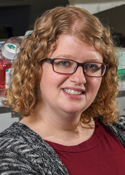
To advance the career of a trainee who attends the AAI annual meeting and presents an outstanding abstract specifically in the area of mucosal immunology
Kathryn A. Knoop, Ph.D., Postdoctoral Fellow, Washington Univ. in St. Louis
AAI-Thermo Fisher Trainee Achievement Awards
To recognize promising trainees in the field of immunology
Oscar A. Aguilar, Graduate Student, Univ. of Toronto, Sunnybrook Research Inst.
Semir Beyaz, Graduate Student, Harvard Med. Sch.
Michael G. Constantinides, Ph.D., Postdoctoral Fellow, NIAID, NIH
Rajendra Karki, Ph.D., Postdoctoral Fellow, St. Jude Children’s Res. Hosp.
Hadi Maazi, D.V.M., Ph.D., Postdoctoral Fellow, Univ. of Southern California
Kelsey Voss, Graduate Student, Uniformed Serv. Univ. of the Hlth. Sci.
Acknowledgments
- AAI Early Career Faculty Travel Grants
- AAI Laboratory Travel Grants
- FASEB MARC Mentored Poster/Platform (Oral) Presenter Travel Awards
Sponsored by FASEB MARC Program under a grant from NIGMS, NIH
[FASEB MARC Program: T36-GM08059-32 NCE] - AAI Undergraduate Faculty Travel Grants
- AAI Trainee Abstract Awards
- AAI Trainee Poster Awards
Poster Presentations
Antigen Receptor Signaling
Asthma and Airway Immunity
B Cells and Autoimmunity
Cell Subset and Pathway Dysregulation in Human Disease II
Checkpoints and Tumor Immunoregulation
Co-infection and Host-Pathogen Heterogeneity
Genetics of Human Immune-mediated Diseases
Hematopoiesis and Immune Cell Development II
IL-17 Cytokine Family Functions and Regulation
Immune Regulation at Mucosal Surfaces
Immune-Tissue Interactions
Inflammasomes
Inflammation and Infection at Mucosal Surfaces
Inflammation and Microbiota in Tumor Immunity
Innate Immune Signaling
Innate Immunity to Microbes I
Late-Breaking Cellular Adhesion, Migration, and Inflammation
Late-Breaking Innate Immune Responses and Host Defense:
Molecular Mechanisms
Late-Breaking Mucosal and Regional Immunology
Late-Breaking Therapeutic Approaches to Autoimmunity
Late-Breaking Vaccines and Immunotherapy
Lymphocyte Activation and Differentiation
Mechanisms of Innate Immunity
Metabolism and Immune Signatures in Tumors
Molecular Cascades and Host Immunity
NK and T Cell Activity during Virus Infections
Novel Strategies for Cancer Vaccines
Regulation of Autoimmune Responses
Technological Innovations I
Transplantation Immunology
Triggers and Tolerance in Autoimmunity
AAI Clinical Immunology Committee: Lymphocyte Engineering for Cancer and Beyond
Chairs:
Thomas F. Gajewski, Univ. of Chicago Med. Ctr.; AAI Clinical Immunology Committee Chair
Agnes M. Azimzadeh, Univ. of Maryland
Speakers:
- Marcela V. Maus, Massachusetts Gen. Hosp., The human T cell as a therapeutic drug
- David W. Scott, Uniformed Serv. Univ. of Hlth. Sci., Driving CARs to BARs: the road to engineered human antigen-specific regulatory and cytotoxic T cells
- Malcolm K. Brenner, Baylor Col. of Med., Adoptive immunotherapy of cancer: beyond the B cell barrier
- Charles L. Sentman, Geisel Sch. of Med., Dartmouth, Design and engineering of immune receptors for adoptive cell therapy
The adoptive transfer of specific lymphocyte subsets has been pursued as a strategy for immunotherapy over the past several decades, either for immune potentiation or immune suppression. Advances in genetic engineering technologies have enabled the reprogramming of lymphocytes, providing these cells with new specificities and even new functional attributes. Perhaps the most advanced of these strategies in clinical development is the application of chimeric antigen receptor (CAR)-transduced T cells for the treatment of B cell malignancies. This session will explore the diversity of approaches being investigated in lymphocyte engineering, both in the context of cancer and in other clinical scenarios.
International Complement Society (ICS) Symposium: 21st Century Complement: Beyond the Textbooks
Chairs:
Andrea J. Tenner, Univ. of California, Irvine
Berhane Ghebrehiwet, Stony Brook Univ. Hlth. Sci. Ctr.
Speakers:
- Jörg Köhl, Univ. of Lübeck, Germany, and Cincinnati Children’s Hosp., Complement as a potential clinical driver and therapeutic target in Gaucher’s Disease
- Baerbel Rohrer, Med. Univ. of South Carolina, Complement and age-related macular degeneration – anaphylatoxins and RPE signaling
- Rick A. Wetsel, Univ. of Texas McGovern Med. Sch., Complement response to Listeria monocytogenes: modulation of an intracellular beta-interferon response pathway
- Suzan H. M. Rooijakkers*, Med. Microbiology Univ. Med. Ctr. Utrecht, Netherlands, Complement activation as a target for combating infections
*EMBO Young Investigator Lecture
Society for Glycobiology (SfG) Symposium: Emerging Roles for Glycans in Immunity and Novel Tools to Understand Them
Chairs:
Brian A. Cobb, Case Western Reserve Univ. Sch. of Med.
Natasha Zachara, Johns Hopkins Univ. Sch. of Med
Speakers:
- Brian A. Cobb, Case Western Reserve Univ. Sch. of Med., Simple tools for the study of the glycome: an HIV glycomic biomarker case report
- Rick L. Tarleton, Univ. of Georgia, Manipulating the host: the Trypanosoma cruzi immune interface
- Natasha Zachara, Johns Hopkins Univ. Sch. of Med., Tuning OGT and OGA expression reveals a role for dynamic O-GlcNAcylation in regulating AMPK signaling and autophagy
- Stefan Ruhl, Univ. of Buffalo Sch. of Dent. Med., Saliva glycoproteins as a first line oral host defense
- Michael Demetriou, Univ. of California, Irvine Sch. of Med., Metabolic regulation of immunity and autoimmunity via N-glycosylation
AAI-BD Biosciences Investigator Award Presentation and Lecture: Initiation and regulation of innate immunity
Generously supported by BD Biosciences
Chair:
Arlene H. Sharpe, Harvard Med. Sch., AAI President
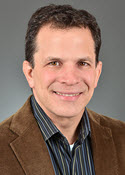 Award Recipient:
Award Recipient:
Jonathan C. Kagan, Harvard Med. Sch., Boston Children’s Hosp.
Initiation and regulation of innate immunity
AAI President Arlene H. Sharpe and Robert Balderas, Vice President of Biological Sciences, BD Biosciences, will introduce the awardee and present the award immediately prior to Dr. Kagan’s lecture.
The AAI-BD Biosciences Investigator Award recognizes an early-career investigator who has made outstanding contributions to the field of immunology.
Distinguished Lecture – Giorgio Trinchieri: Cancer as a disease of the metaorganism
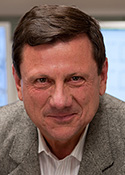
Giorgio Trinchieri
NCI, NIH
Cancer as a disease of the metaorganism
Chair:
Wendy L. Havran, Scripps Res. Inst., AAI Program Committee Chair
Careers in Biotech: Panel Discussion and Networking
Sponsored by the AAI Education Committee
Chair:
Kerry A. Casey, MedImmune
Panelists:
- Ann Field, Associate Director, Research Project and Portfolio Management, MedImmune
- Andrea Itano, Vice President, Head of Tempero Discovery Performance Unit, GlaxoSmithKline
- Ingrid L. Scully, Senior Principal Scientist, Pfizer
- Matthew Sleeman, Executive Director, Immunology & Inflammation, Regeneron Pharmaceuticals, Inc.
Many opportunities exist in industry for scientists with advanced degrees. There are positions in laboratory research, program management, business development, regulatory affairs, clinical trials oversight, medical liaison, and more. This panel features scientists employed in a variety of positions in industry discussing their career paths and the skills required for success in each. Following the panel discussion, enjoy casual conversation with the speakers and other scientists from industry at a networking reception.
The AAI Journals Editorial Boards Dinner Meeting (By Invitation Only)
Generously sponsored by Sheridan Journal Services
Editorial Board members meet to discuss items of interest and concern regarding The JI specifically, and scientific publishing in general.
Major Symposium C: T and B Cell Tolerance: Old Subject, New Insights
Chairs:
Mark M. Davis, HHMI, Stanford Univ.
Kristin A. Hogquist, Univ. of Minnesota
Speakers:
- Kristin A. Hogquist, Univ. of Minnesota, Stages of thymic clonal deletion
- Peter A. Savage, Univ. of Chicago, Going rogue: Aire and the enforcement of immune tolerance
- Klaus Ley, La Jolla Inst. for Allergy and Immunol., Expansion and collapse of ApoB-specific CD4 T cells in atherosclerosis
- James J. Moon, Massachusetts Gen. Hosp., Harvard Med. Sch., Regulation of tolerance in the self antigen-specific CD4+ T cell repertoire
- Katie Haskins, Univ. of Colorado Sch. of Med., Hybrid insulin peptides as autoantigens for CD4 T cells in autoimmune diabetes
- Christopher C. Goodnow, Garvan Inst. of Med. Res., Australia, Autoantibodies, anergy, mutations, and CTLA4: redemption or revolt of forbidden clones
Major Symposium D: Immune Restriction or Antagonism at the Host-Virus Interface
Chairs:
Michael S. Diamond, Washington Univ. Sch. of Med.
Sonja M. Best, NIAID, NIH
Speakers:
- Matthew Daugherty, Univ. of California, San Diego, Evolution of innate antiviral immunity
- Sonja M. Best, NIAID, NIH, Restriction of flavivirus replication by TRIM proteins
- Saumendra N. Sarkar, Univ. of Pittsburgh Sch. of Med., New insights in the mechanism of action of OAS-family proteins
- Meike Dittmann, New York Univ. Sch. of Med., Innate and intrinsic barriers of respiratory virus infections
- Daved H. Fremont, Washington Univ. Sch. of Med., Mechanisms of viral immune evasion
- Brian M. Sullivan, Scripps Res. Inst., T cell responses and platelet function during viral hemorrhagic fever
National Institute of Environmental Health Sciences (NIEHS) Symposium: B Cell Responses to Environmental Exposures
Chairs:
Michael C. Humble, NIEHS, NIH
Mary H. Foster, Duke Univ.
Speakers:
- Mary H. Foster, Duke Univ., Respiratory silica exposure and humoral autoimmunity
- Allen Rosenspire, Wayne State Univ., Developmental and environmental regulation of B cell receptor sensitivity potentially shapes the B cell repertoire
- Norbert E. Kaminski, Michigan State Univ., Role of aryl hydrocarbon-dioxin interaction in impairment of human stem cell to B cell lineage commitment
Block Symposia
8:00 AM – 10:00 AM
Innate Immune Cells
Innate Immunity and B Cells in the Tumor
Metabolism, Microbiomes, and Host Immunity
Molecular Pathways in Autoimmunity
Pathogen Control and Evasion Strategies
Regulation of Innate Inflammatory Responses
10:15 AM – 12:15 PM
CD8 T Cells in Tumor Immunology
Novel Approaches to Autoimmunity of the Nervous System
Signaling and Gene Regulation in the Immune System
10:45 AM – 12:15 PM
Regulatory Mechanisms of Innate Immune Responses
12:30 PM – 2:30 PM
Immune Responses in Tumor Immunotherapy
Innate Effectors of Autoimmunity
Mucosal Immune Regulation by Microbiota and Diet
Novel Factors in the Regulation of T Helper Cell Differentiation
Regulation of Inflammatory Responses
3:45 PM – 5:45 PM
Biology of B Cells
Cell Subset and Pathway Dysregulation in Human Disease II
Immunosuppressive Networks and Tumor Immunity
Metabolism and Immune Signatures in Tumor Immunity
New Treatment Strateg
National Institute on Aging (NIA) Symposium: Innate Immunity and Aging
Chairs:
Rebecca A. Fuldner, NIA, NIH
Elizabeth J. Kovacs, Univ. of Colorado, Denver
Speakers:
- Matthew T. Rondina, Univ. of Utah, Platelet reprogramming in aging drives dysregulated inflammation
- Ruth R. Montgomery, Yale Univ., Systems analysis of innate immune responses in aging
- Charles T. Lutz, Univ. of Kentucky, Sex of elderly individuals affects NK cell immunity
- Elizabeth J. Kovacs, Univ. of Colorado, Denver, Aging alters macrophage responses in the lung
American Society for Reproductive Immunology (ASRI) Symposium: Innate Immunity and Pregnancy
Chairs:
Kenneth D. Beaman, Chicago Med. Sch., Rosalind Franklin Univ. of Med. and Sci.
Peter J. Hansen, Univ. of Florida
Speakers:
- Kenneth D. Beaman, Chicago Med. Sch., Rosalind Franklin Univ. of Med. and Sci., Pregnancy: a model for cancer, not transplantation
- Svetlana Dambaeva, Chicago Med. Sch., Rosalind Franklin Univ. of Med. and Sci., The role of IL-22 cytokine in pregnancy
- John Bromfield, Univ. of Florida, Ovarian innate immunity: impacts of uterine infection on oocytes and follicles
- Peter J. Hansen, Univ. of Florida, Programming of mammalian development by maternally derived cytokines
Society for Leukocyte Biology (SLB) Symposium: Innate Lymphoid Cells in Immunity
Chairs:
Mark A. Wallet, Univ. of Florida
Matthew J. Delano, Univ. of Michigan
Louis B. Justement, Univ. of Alabama
Speakers:
- Jörg H. Fritz, McGill Univ., Canada, Regulation of group 2 innate lymphoid cells
- Kristine-Ann Buela, Case Western Reserve Univ. Sch. of Med, The role of ILC2s activated by microbiota-induced IL-33 in the pathogenesis of Crohn’s-like ileitis
- Jamie Lynn Sturgill, Virginia Commonwealth Univ., Targeting sphingolipids as a novel control mechanism for ILC2-mediated lung inflammation
- Yin Guo, Vanderbilt Univ. Med. Ctr., Interleukin-15 enables septic shock by maintaining natural killer cell integrity and function
Interviewing for a Job
Chair:
Mary T. Litzinger, Education and Awards Dept., AAI
Speaker:
- Derek Haseltine, Director, Career Development Center, Baylor Col. of Med.
This session will focus on tips and techniques to help you successfully navigate the interview process. Emphasis will be on how you can present yourself in the best possible light. You will also learn how to respond to unexpected questions. This session is open to anyone but is especially intended for student and postdoctoral attendees.
NIH Grants Workshop: Demystifying the Grant Application Submission, Review, and Funding Processes
Chair:
Tina McIntyre, CSR, NIH
Panelists:
- Tina McIntyre, Scientific Review Officer, III Study Section, Immunology IRG, DPPS, CSR, NIH
- Deborah Hodge, Scientific Review Officer, Immunology Fellowships and AREA Study Section, Immunology IRG, DPPS, CSR, NIH
- Alison Deckhut-Augustine, Chief, Basic Immunology Branch, Division of Allergy, Immunology, and Transplantation, NIAID, NIH
- Priti Mehrotra, Chief, Immunology Review Branch, Division of Extramural Activities, NIAID, NIH
- T. Kevin Howcroft, Chief, Cancer Immunology and Hematology Etiology Branch, Division of Cancer Biology, NCI, NIH
This workshop will provide participants with an overview of NIH grant submission, assignment, review, and funding opportunities. Emphasis will be given to identification of the most appropriate funding agencies and mechanisms available through NIH, how to make an application “reviewer friendly,” and other strategies that contribute to applications that succeed in obtaining research funding. The workshop will also provide information on how to understand the peer review system, which is essential to competing successfully for funding, with a focus on recent changes to the review process. NIH review and program staff will provide a broad array of expertise and encourage questions from seminar participants. This workshop is open to anyone interested in learning more about preparing an NIH grant application and obtaining NIH funding. Trainees and independent investigators are welcome.
AAI Education Committee and AAI Committee on the Status of Women: Careers in Science Roundtable
Chair:
Virginia Shapiro, Mayo Clin.; AAI Committee on the Status of Women Chair
At this popular session, you’ll have the opportunity to meet with scientists at your own career stage and with more experienced scientists to explore specific career issues important to men and women in science today. Learn what others are thinking and gain insights into issues you are confronting in your own situation. Recently added topics offer insights into international opportunities in science, NIH Study Sections, considerations for scientists in M.D.-Ph.D. careers, and a number of ways scientists contribute to the field in non-research careers. Choose from these and other vital topics related to the environment you work in (academic research, biotech industry, governmental agencies, non-profits), the transitions from specific career stages, or issues in balancing career and family in any career path. Don’t miss this great networking opportunity! Registration Fee: $25 (Lunch included.)
Discussion topics and table leaders:
- Research Careers in Academia
- Graduate Student to Postdoc: finding a postdoc, interviewing
Table Leaders: Steve M. Varga, Univ. of Iowa; Subbarao Bondada, Univ. of Kentucky; Ashok Kumar, Children’s Hosp. of East Ontario Res. Inst.; Arash Grakoui, Emory Univ.; Chander Raman, Univ. of Alabama, Birmingham; Michelle A. Kutzler, Drexel Univ. Col. of Med.; Klaus Ley, La Jolla Inst. for Allergy and Immunol.; Tonya J. Webb, Univ. of Maryland Sch. of Med. - Postdoc to PI: finding a position, interviewing, negotiating, lab start-up
Table Leaders: Lauren A. Zenewicz, Univ. of Oklahoma Hlth. Sci. Ctr.; Bao Q. Vuong, City Col. of New York; Damian L. Turner, Williams Col.; Lisa K. Denzin, Rutgers Univ.; Heather R. Conti, Univ. of Toledo; Fotini Gounari, Univ. of Chicago; Khashayarsha Khazaie, Mayo Clin.; Jennifer A. Punt, Columbia Univ. Med. Ctr.; Pooja Jain, Drexel Univ. Col. of Med.; Lyse A. Norian, Univ. of Alabama, Birmingham - New PI:
- Attracting students and postdocs
Table Leaders: Laura A. Solt, Scripps Res. Inst.; Louise M. D’Cruz, Univ. of Pittsburgh - Preparing for promotion
Table Leaders: Yina H. Huang, Dartmouth Geisel Sch. of Med.; Lisa H. Butterfield, Univ. of Pittsburgh
- Attracting students and postdocs
- Negotiating an Academic Position
Table Leaders: Malini Raghavan, Univ. of Michigan; Janice S. Blum, Indiana Univ. Sch. of Med. - Undergraduate Institutions: finding the balance in teaching, doing research
Table Leaders: Charlotte M. Vines, Univ. of Texas, El Paso; Penny E. Shockett, Southeastern Louisiana Univ.; Julie M. Jameson, California State Univ., San Marcos - Mentoring Effectively
Table Leaders: Partha Sarathi Biswas, Univ. of Pittsburgh; Lawrence P. Kane, Univ. of Pittsburgh
- Graduate Student to Postdoc: finding a postdoc, interviewing
- Networking Skills
- How to build a network for postdocs
Table Leaders: Paula M. Oliver, Univ. of Pennsylvania; Elizabeth A. Repasky, Roswell Park Cancer Institute - Networking skills for PIs
Table Leaders: Madeleine W. Cunningham, Univ. of Oklahoma Hlth. Sci. Ctr.; Suzanne Ostrand-Rosenberg, Univ. of Maryland, Baltimore County
- How to build a network for postdocs
- Career and Family: balancing parenthood and career; the dual career couple
Table Leaders: Cathryn Nagler, Univ. of Chicago; Laura Santambrogio, Albert Einstein Col. of Med. - Careers in Biotech and Industry: moving from academia to industry and vice versa
Table Leaders: Andrew C. Chan, Genentech; Divya Sagar, MedImmune; Saifur Rahman, MedImmune; Laura L. Carter, Lycera Corp.; Catherine J. McMahan, Emergent BioSolutions; Mandy J. McGeachy, Univ. of Pittsburgh; Lisa I. Hoover, Precision for Medicine; Andrea Itano, GlaxoSmithKline; Matthew Sleeman, Regeneron Pharmaceuticals, Inc.; Fang Shen, Janssen Pharmaceuticals, Inc.; Krit Ritthipichai, Lion Biotechnologies, Inc.; Gundula E. Min-Oo, Gilead Sciences - Careers at Governmental Agencies
Table Leaders: Pam L. Schwartzberg, NHGRI, NIH; Joan K. Lunney, USDA; Chao Jiang, NIAID, NIH; Jonathan W. Yewdell, NIAID, NIH - NIH Study Section Insights
- Grant Writing for Fellowships/Transition Awards
Table Leaders: Maureen Ann McGargill, St. Jude’s Children’s Res. Hosp.; Michael A. Farrar, Univ. of Minnesota; Kristin A. Hogquist, Univ. of Minnesota - Grant Writing for PIs
Table Leaders: Virginia Shapiro, Mayo Clin.; Mark L. Lang, Univ. of Oklahoma Hlth. Sci. Ctr.; Robert J. Binder, Univ. of Pittsburgh; Catherine C. “Lynn” Hedrick, La Jolla Inst. for Allergy and Immunol.
- Grant Writing for Fellowships/Transition Awards
- The Physician Scientist: balancing clinical and research duties
Table Leaders: Saad Kenderian, Mayo Clin.; Penelope A. Morel, Univ. of Pittsburgh - Research from the M.D., Ph.D. Perspective
Table Leader: Ifor R. Williams, Emory Univ. - Non-Research Careers for Scientists: careers enabling scientists to advance the field away from the bench
- Scientific Publishing
Table Leaders: Ellen C. Fox, AAI, The Journal of Immunology, Angela Colmone, AAAS, Science Immunology - Opportunities for Scientists in Foundations/Non-profits
Table Leaders: M. Michele Hogan, Executive Director, AAI; Susanna F. Greer, American Cancer Society - Careers in Technology Transfer
Table Leaders: Wendy Martin, Univ. of Maryland, Baltimore County; Mark L. Rohrbaugh, Office of Intramural Research, NIH - Careers in Science Policy
Table Leaders: Lauren G. Gross, Public Policy and Government Affairs, AAI; Carrie D. Wolinetz, Office of Science Policy, NIH
- Scientific Publishing
- International Opportunities in Science
Table leaders: Susan John, Kings Col. London; John E. Connolly, Inst. of Molecular and Cell Biol., Singapore; Hans-Martin Jäck, Univ. of Erlangen-Nürnberg, Germany
AAI-BioLegend Herzenberg Award Presentation and Lecture: The HIV vaccine problem
Generously supported by BioLegend
Chair:
Arlene H. Sharpe, Harvard Med. Sch., AAI President
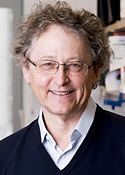 Award Recipient:
Award Recipient:
Michel C. Nussenzweig, HHMI, Rockefeller Univ.
The HIV vaccine problem
AAI President Arlene H. Sharpe and Gene Lay, President and CEO, BioLegend, will introduce the awardee and present the award immediately prior to Dr. Nussenzweig’s lecture.
The AAI-BioLegend Herzenberg Award recognizes outstanding research contributions to the field of immunology in the area of B cell biology.
International Cytokine and Interferon Society (ICIS) Symposium: Cytokines, Cells, and Disease
Chairs:
Ram Savan, Univ. of Washington
Katrin Mayer-Barber, NIAID, NIH
Speakers:
- Keiko Ozato, NICHD, NIH, Super enhancers in macrophage innate immunity: the role of BRD4
- Ram Savan, Univ. of Washington, Regulatory elements controlling type III IFN responses during viral infection
- Lisa Osborne, Univ. of British Columbia, Canada, Immune-mediated regulation of the intestinal virome
- Ari Molofsky, Univ. of California, San Francisco, Defining group 2 innate lymphoid cell tissue niches
- Katrin Mayer-Barber, NIAID, NIH, Inflammatory cytokines and lipid mediators in host resistance to tuberculosis
- Howard Young, NCI, NIH, The dark side of interferon-gamma
Society for Natural Immunity (SNI) Symposium: Natural Killer Cells and Cancer: From Basic Research to Clinical Application
Chairs:
Adelheid Cerwenka, German Cancer Res. Ctr., Germany
Hans-Gustaf Ljunggren, Karolinska Inst., Sweden
Speakers:
- Thierry Walzer, Ctr. International de Recherche en Infectiologie (CIRI), Lyon, France, Regulation and role of mTOR in NK cells during antitumor responses
- Mariapia A. Degli-Esposti, Univ. of Western Australia, Australia, NK cells, viral infection, and transplantation
- Jianhua Yu, Ohio State Univ., Chimeric antigen receptor-redirected natural killer cells for cancer treatment
- Jeffrey S. Miller, Univ. of Minnesota, Novel strategies to make NK cells remember and become antigen specific
Capitol Hill Day Training (By Invitation Only)
This session will prepare those who have registered for, and been invited, to visit Capitol Hill with AAI on Tuesday, May 16. Invited participants must attend this session or the session held on Saturday, May 13, from 11:00 AM – 12:00 PM.
Poster Presentations
Antibody-based Cancer Therapeutics
Anti-pathogen Immunity
B Cells, Antibodies, and the Adaptive Immune Response to
Viruses
Cytokines Shape Host Immune Responses to Infection
Gene Regulation in Immunocytes
Host-Microbial Interactions in Human Disease
IFN, Chemokine, and Unique Signal Cues in Tumors
Immune Therapies for Inflammatory Conditions
Immunology Education
Innate Immune Sensing and Signaling
Innate Immunity and B Cells in Tumors
Innate Immunity to Microbes II
Late-Breaking Basic Autoimmunity
Late-Breaking Cytokines and Chemokines and Their Receptors
Late-Breaking Hematopoiesis and Immune System
Development
Late-Breaking Immediate Hypersensitivity, Asthma, and Allergic
Responses
Late-Breaking Immune Response Regulation: Molecular
Mechanisms
Late-Breaking Immunology Education
Late-Breaking Innate Immune Responses and Host Defense:
Cellular Mechanisms
Late-Breaking Microbial, Parasitic, and Fungal Immunology
Late-Breaking Transplantation Immunology
Late-Breaking Tumor Immunology
Late-Breaking Veterinary and Comparative Immunology
Leukocyte Adhesion and Migration
Lymphocyte Response, Regulation, and Memory
Mast Cells and Basophils
MHC I, MHC II, CD1: Antigen Processing and Presentation
Novel Approches for Enhancing Immunity against Viral and
Bacterial Infection
Pathogen Control and Evasion Strategies
Regional Immunity and Mucosal Inflammation
Regulation of CD4 T Cell Differentiation
Regulation of Cell-mediated Host Defense
Regulation of Humoral Responses
Regulation of Immunity at the Lung Mucosa
Regulatory Mechanisms in Aging and Tumor Responses
T Cell Subsets in Tumor Immunity
T Cells and Autoimmunity
Technological Innovations II
Viral Immunology: Cytokines/Chemokines and the Innate
Immune Response
American Society of Transplantation (AST) Symposium: Non-Antibody-Mediated Roles of B Cells in Auto- and Allo-immunity
Chairs:
Maria-Luisa Alegre, Univ. of Chicago
David M. Rothstein, Univ. of Pittsburgh Med. Ctr.
Speakers:
- Claudia Mauri, Univ. Col. London, United Kingdom, Regulatory B cells in autoimmunity
- David M. Rothstein, Univ. of Pittsburgh Med. Ctr., Modulation of the immune system by regulatory and effector B cells
- Geetha Chalasani, Univ. of Pittsburgh, Role of B cells in shaping T cell memory and chronic rejection
- Anita S. Chong, Univ. of Chicago, Tolerance of alloreactive B cells in transplantation
Korean Association of Immunologists (KAI) and Association of Korean Immunologists in America (AKIA) Symposium: Crosstalk between Phagocytes and T Cells
Chairs:
Cheong-Hee Chang, Univ. of Michigan Sch. of Med.
Chang-Duk Jun, Guangju Inst. of Sci. and Technol., Korea
Speakers:
- Wan-Uk Kim, Catholic Univ. of Korea, Seoul St. Mary’s Hosp., Korea, Role of nuclear factor of activated T cells 5 in macrophage survival and chronic arthritis
- Myong-Hee Sung, NIA, NIH, Epigenomic profiling to identify optimal steroid intervention of macrophage inflammatory responses
- Seung-Hyo Lee, Korea Advanced Inst. of Sci. and Technol., Korea, Regulation of immune responses by lymphatic system
- Yusang Gwack, Univ. of California, Los Angeles, Novel mechanisms of CRAC channel activation in T cells
- Chang-Duk Jun, Guangju Inst. of Sci. and Technol., Korea, A pivotal role for TAGLN2 in Toll-like receptor-induced phagocytosis
AAI-Thermo Fisher Meritorious Career Award Presentation and Lecture: Microbiota control of tissue immunity: context and consequences
Generously supported by Thermo Fisher Scientific
Chair:
Arlene H. Sharpe, Harvard Med. Sch., AAI President
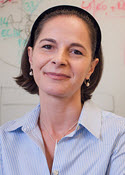 Award Recipient:
Award Recipient:
Yasmine Belkaid, NIAID, NIH
Microbiota control of tissue immunity: context and consequences
AAI President Arlene H. Sharpe and Christoph Hergersberg, Vice President, Research and Development, Thermo Fisher Scientific, will introduce the awardee and present the award immediately prior to Dr. Belkaid’s lecture.
The AAI-Thermo Fisher Meritorious Career Award recognizes a mid-career scientist for outstanding research contributions to the field of immunology.
Distinguished Lecture – Ellen A. Robey: Factors that determine T cell fate in the thymus
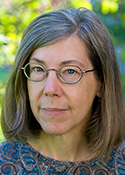
Ellen A. Robey
Univ. of California, Berkeley
Factors that determine T cell fate in the thymus
Chair:
Wendy L. Havran, Scripps Res. Inst., AAI Program Committee Chair
Service Appreciation Reception (By Invitation Only/Badge Required)
Generously sponsored by BioLegend
AAI honors the dedicated member volunteers of the association—committee members, editors, abstract programming chairs, and others—who work on the membership’s behalf throughout the year by giving generously of their time in support of the AAI mission. Open (by invitation only) to 2016-2018 AAI volunteers.
Major Symposium E: Communication across Barriers at the Skin and Mucosal Surfaces
Chairs:
Hiroshi Kiyono, Univ. of Tokyo
Cathryn Nagler, Univ. of Chicago
Speakers:
- Hiroshi Kiyono, Univ. of Tokyo, Japan, Paneth, mesenchymal, and innate lymphoid cell alliance as an immunological firewall for commensal and pathogenic microorganisms
- Ken Cadwell, New York Univ. Sch. of Med., Host-microbiome interactions and inflammatory bowel disease
- Adrian C. Hayday*, Francis Crick Inst. and King’s Coll. London, United Kingdom, Epithelia use organ-specific butyrophilin-like molecules to compose local T cell compartments
*British Society for Immunology Lecturer - Daniel Mucida, Rockefeller Univ., Adaptation to the gut tissue: implications for immunity and tolerance
- Cathryn Nagler, Univ. of Chicago, Regulation of allergic sensitization to food by commensal bacteria
- Heidi H. Kong, NCI, NIH, Host-microbial interactions at the skin surface
Major Symposium F: Neutrophil Function in Autoimmunity, Infection, and Cancer
Chairs:
Mariana J. Kaplan, NIAMS, NIH
Clifford A. Lowell, Univ. of California, San Francisco
Speakers:
- Clifford A. Lowell, Univ. of California, San Francisco, Calcium signaling mechanisms in neutrophils
- Hongbo R. Luo, Harvard Med. Sch., Gasdermin D in neutrophils: function and mechanism of activation
- Sarah R. Walmsley, Univ. of Edinburgh, United Kingdom, Hypoxia and the innate immune response
- Attila Mócsai, Semmelweis Univ., Hungary, Neutrophil signaling during inflammatory disease models
- Mariana J. Kaplan, NIAMS, NIH, Neutrophils as promoters of systemic autoimmunity
- Evgeniy B. Eruslanov, Univ. of Pennsylvania, Tumor-associated neutrophils with antigen-presenting cell features in human lung cancer
Block Symposia
8:00 AM – 10:00 AM
Antigen Receptor Signaling
Checkpoints and Tumor Immune Regulation
Co-infection and Host-Pathogen Heterogeneity
Genetics of Human Immune-mediated Diseases
Graft-versus-Host Disease and Hematopoietic Stem Cell Transplantation
IL-17 Cytokine Family Regulation and Function
Mechanisms of Innate Immunity
T Cells and Autoimmunity
10:15 AM – 12:15 PM
Asthma and Airway Immunity
Cellular and Molecular Regulation of Immune Responses Induced by Vaccine/Immunotherapy
12:30 PM – 2:30 PM
B Cells and Autoimmunity
Impacting Innate Immune Signaling and Cell Function
Innate Immunity to Microbes I
Regulatory, Inflammatory, and Helper T Cell Activities during a Virus Infection
Tolerance and Rejection in Transplantation
3:45 PM – 5:45 PM
B and Innate Cell Development
Cytokine Regulation and Autoimmunity
Inflammasomes
Regulation of Immunity at the Lung Mucosa
T Cell Subsets in Cancer Immunotherapy
Veterinary and Comparative Immunology
FASEB Excellence in Science Award Presentation and Lecture: Treg flavors
Chairs:
Virginia Shapiro, Mayo Clin., AAI Committee on the Status of Women Chair
Louis B. Justement, Univ. of Alabama, Birmingham, FASEB Board Member
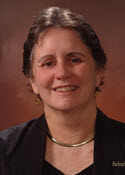 Award Recipient:
Award Recipient:
Diane J. Mathis, Harvard Med. Sch.
Treg flavors
The FASEB Excellence in Science Award recognizes a woman in biological science whose outstanding research achievements have contributed significantly to understanding a specific discipline.
AAI Committee on Public Affairs: Biomedical Research Priorities in the New Administration and Congress
Chair:
Beth A. Garvy, Univ. of Kentucky; AAI Committee on Public Affairs Chair
Speakers:
- Beth Garvy, Ph.D., Univ. of Kentucky
- Jocelyn Kaiser, Science Magazine
- David Chaplin, M.D., Univ. of Alabama, Birmingham
A new presidential administration can usher in a great deal of change, including new leadership in key scientific posts who will help implement the president’s agenda and fulfill the missions of their agencies. This session will explore President Donald Trump’s budget and policy priorities, as well as the priorities of the Republican-led Congress, in the area of biomedical research. What changes can we expect, and what issues are likely to dominate the debate? Join the AAI Committee on Public Affairs in welcoming experts who can share important insights and answer pivotal questions.
National Cancer Institute (NCI) Symposium: BRD4, a Central Player in Cancer and Immune Responses
Chairs:
Devaiah Ballachanda, NCI, NIH
T. Kevin Howcroft, NCI, NIH
Speakers:
- Dinah S. Singer, NCI, NIH, BRD4, linking chromatin structure and transcription
- Cheng-Ming Chiang, Univ. of Texas Southwestern Med. Ctr., BRD4 in gene-specific targeting and cancer therapeutics
- Rugang Zhang, Wistar Inst., BRD4 and antitumor immunity in ovarian cancer
- Gerald V. Denis, Boston Univ. Sch. of Med., BET bromodomain proteins couple microenvironment cytokines to breast cancer progression
National Institutes of Health Immunology Interest Group (IIG) Symposium: The Rising Face of NIH: New Investigators in the NIH Intramural Program. A Tribute to Bill Paul
Chairs:
Vanja Lazarevic, NCI, NIH
Pamela Schwartzberg, NHGRI, NIH
Speakers:
- Vanja Lazarevic, NCI, NIH, Transcriptional regulation of autoreactive CD4+ T cell responses
- Daniel L. Barber, NIAID, NIH, Protective and pathogenic CD4+ T cell responses in Mycobacterium tuberculosis infection
- Michail S. Lionakis, NIAID, NIH, Bench to bedside study of candidiasis
- Jennifer A. Martinez, NIEHS, NIH, Non-canonical autophagy links efferocytosis to inflammation
- Iain D. Fraser, NIAID, NIH, Novel insight to cross-species innate immune signaling networks through systematic genetic screening
- John S. Tsang, NIAID, NIH, Systems/quantitative approaches to study immunology: from humans to single cells
International Society of Neuroimmunology (ISNI) Symposium: Innate and Adaptive Immunity in Neurodegenerative Disorders
Chairs:
Jonathan Kipnis, Univ. of Virginia
Ari Waisman, Johannes Gutenberg Univ. of Mainz, Germany
Speakers:
- Maya Koronyo-Hamaoui, Cedars Sinai Med. Ctr., Therapeutic roles of monocytes in Alzheimer’s disease
- Frauke Zipp, Johannes Gutenberg Univ. of Mainz, Germany, Counteracting inflammatory attacks on the brain
- Steve Lacroix, Laval Univ., Canada, Involvement of the IL-1 system in spinal cord cell death after injury
- Michal Schwartz, Weizmann Inst. of Sci., Israel, Harnessing the immune system to protect the brain: the prospect of immune checkpoint blockade for treating Alzheimer’s disease
AAI Vanguard Lecture: Advancing towards optimized cancer immunotherapy
Sponsored by AAI Minority Affairs Committee
Chair:
Cherié L. Butts, Biogen; AAI Minority Affairs Committee Chair
Speaker:
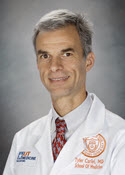 Tyler J. Curiel, Univ. of Texas Hlth. Sci. Ctr., San Antonio, Advancing towards optimized cancer immunotherapy
Tyler J. Curiel, Univ. of Texas Hlth. Sci. Ctr., San Antonio, Advancing towards optimized cancer immunotherapy
Since 2003, the AAI meeting has featured a scientific lecture presented by an AAI member who is an underrepresented minority investigator. Selected for their achievements in the field of immunology, presenters are among the most prominent investigators in the field and models of successful career development.
AAI President’s Symposium: Second Signals: Translating Understanding into Therapy
Chair:
Arlene H. Sharpe, Harvard Med. Sch., AAI President
Speakers:
- Rafi Ahmed, Emory Univ., From reovirus to PD-1
- Ana C. Anderson, Harvard Med. Sch., Co-inhibitory receptors and T cell dysfunction
- Dario A.A. Vignali, Univ. of Pittsburgh, Synergistic interactions between PD-1 and LAG-3
- Suzanne L. Topalian, Johns Hopkins Univ. Sch. of Med., PD-1 pathway blockade: a common denominator for cancer therapy

Rafi Ahmed
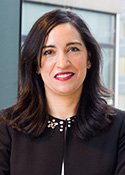
Ana C. Anderson
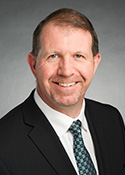
Dario A.A. Vignali
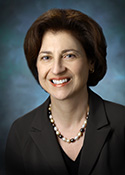
Suzanne L. Topalian
AAI Excellence in Mentoring Award Presentation
Chair:
Arlene H. Sharpe, Harvard Med. Sch., AAI President
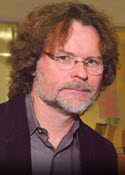 Award Recipient:
Award Recipient:
Lewis L. Lanier, Univ. of California, San Francisco
AAI President Arlene H. Sharpe and Joseph Sun, Mem. Sloan Kettering Cancer Ctr., will introduce the awardee and present the award prior to the start of the President’s Symposium.
The AAI Excellence in Mentoring Award recognizes exemplary career contributions to a future generation of scientists.
International Society for Advancement of Cytometry (ISAC) Symposium: The Many Colors of Flow, High Complexity Flow, and Image Cytometry
Chairs:
Andreas Radbruch, Deutsches Rheuma-Forschungszentrum, Germany
Paul K. Wallace, Roswell Park Cancer Inst.
Speakers:
- S. Alice Long, Benaroya Res. Inst., Identifying mechanisms of failed tolerance in human autoimmunity
- Pia Kvistborg, Netherlands Cancer Inst., Netherlands, Understanding immunotherapy by dissecting the tumor-specific T cell response
- Pratip K. Chattopadhyay, NIAID, NIH, Precision immunology through deeper, single cell cytometry
- Jonathan M. Irish, Vanderbilt Univ., Learning and communicating cell identity in the context of cancer microenvironments
- David W. Hedley, Princess Margaret Cancer Ctr., Canada, High complexity of histological sections using imaging mass cytometry
Society for Mucosal Immunology (SMI) Symposium: Environmental Sensors of Immune Regulation at Mucosal Surfaces
Chairs:
Lauren A. Zenewicz, Univ. of Oklahoma Hlth. Sci. Ctr.
Joanne L. Viney, SMI
Speakers:
- Liang Zhou, Univ. of Florida, Regulation of innate lymphoid cell balance in the gut
- Lauren A. Zenewicz, Univ. of Oklahoma Hlth. Sci. Ctr., Environmental regulation of the cytokine IL-22
- Noah W. Palm, Yale Sch. of Med., Immunological profiling of the gut microbiota
- Gary B. Huffnagle, Univ. of Michigan, Pulmonary immunity, inflammation, and the microbiome
Secrets for a Successful Postdoctoral Fellowship
Speaker:
- Lori Conlan, Director, Office of Postdoctoral Services, NIH
A postdoctoral fellowship is the time to develop research skills you will need to succeed as an independent scientist. It is, however, just as important to realize that you need to prepare for a career path at the same time. This session will highlight ways of getting the most out of your postdoctoral fellowship, relating successfully with your mentor, and understanding how to use the resources available to you to ensure that your training prepares you adequately for a seamless transition into the next phase of your career.
Poster Presentations
Allergic Mechanisms
Biology of B Cells
CD8 T Cells in Tumor Immunity
Cell Subset and Pathway Dysregulation in Human Disease I
Cell Therapy for Cancer
Cellular and Molecular Regulation of Immune Responses
Induced by Vaccine/Immunotherapy
Cellular Immune Responses at the Mucosa
Cytokine Regulation during Autoimmunity and Host Defense
Hematopoiesis and Immune Cell Development I
Immune Response to Respiratory Viruses
Immune Responses in Tumor Therapy
Immunosuppressive Networks in Tumor Immunity
Inflammation and Disease
Innate Effectors of Autoimmunity
Innate Immune Cells
Late-Breaking Antigen Processing and Presentation
Late-Breaking Immune Mechanisms of Human Disease
Late-Breaking Immune Response Regulation: Cellular
Mechanisms
Late-Breaking Lymphocyte Differentiation and Peripheral
Maintenance
Late-Breaking Technological Innovations in Immunology
Late-Breaking Viral Immunology
Lymphocyte Development, Homeostasis, and Aging
Metabolism, Microbiomes, and Host Immunity
Molecular Pathways in Autoimmunity
Mucosal Immune Regulation by Microbiota and Diet
Novel Approaches to Autoimmunity of the Nervous System
Regulation of Inflammatory Responses
Regulation of Innate Inflammatory Responses
Regulatory Mechanisms of Innate Immune Responses
T Helper Cells
Treatment Strategies in Systemic Autoimmune Disease
Vaccines and Immunotherapy for HIV and Other Viral Infections
Veterinary and Comparative Immunology
AAI-Steinman Award for Human Immunology Research Presentation and Lecture: Toward a genetic theory of childhood infectious diseases
Chair:
Arlene H. Sharpe, Harvard Med. Sch., AAI President
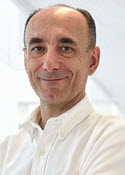 Award Recipient:
Award Recipient:
Jean-Laurent Casanova, HHMI, Rockefeller Univ.
Toward a genetic theory of childhood infectious diseases
AAI President Arlene H. Sharpe will introduce the awardee and present the award immediately prior to Dr. Casanova’s lecture.
The AAI-Steinman Award for Human Immunology Research recognizes an individual who has made significant contributions to the understanding of immune processes underlying human disease pathogenesis, prevention, or therapy.
Distinguished Lecture – Gabriel Núñez: Pathogens, the microbiota, and immunity at the intestinal barrier
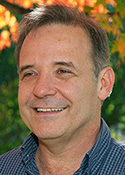
Gabriel Núñez
Univ. of Michigan
Pathogens, the microbiota, and immunity at the intestinal barrier
Chair:
Wendy L. Havran, Scripps Res. Inst., AAI Program Committee Chair
IMMUNOLOGY 2017™ GALA
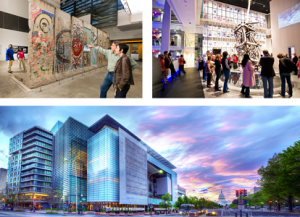 Generously sponsored by BioLegend
Generously sponsored by BioLegend
Newseum
555 Pennsylvania Ave., NW
Washington, DC 20001
Celebrate the freedom of science in style at the Newseum, the world-famous museum of news and journalism, the home of the First Amendment in Washington, D.C. You’re invited to enjoy appetizers from Wolfgang Puck, drink, and dance the night away amidst front pages from 80 international newspapers, the powerful Pulitzer Prize Photographs Gallery, and interactive displays that tackle real-life reporting dilemmas. Take in entire sections of the Berlin Wall and explore where rock and roll and politics meet at the Newseum’s newest exhibit, “Louder than Words.” Before you leave, visit its balconies for breathtaking views of the White House and the U.S. Capitol building.
The news has never been more exciting! Open to all IMMUNOLOGY 2017™ attendees. Come as you are. Complimentary shuttle service will be provided throughout the event between the Newseum and the Walter E. Washington Convention Center. Attendees must be at least 21 years of age. Meeting badge required.
Major Symposium G: Many Shades of Grey: Multifaceted Nature of Immune Suppression in Cancer
Chairs:
Dmitry I. Gabrilovich, Wistar Inst.
Suzanne Ostrand-Rosenberg, Univ. of Maryland, Baltimore County
Speakers:
- Dmitry I. Gabrilovich, Wistar Inst., Regulation of immune responses in cancer by myeloid-derived suppressor cells
- Juan Cubillos-Ruiz, Weill Cornell Med., Abnormal ER stress responses as drivers of immune cell dysfunction in cancer
- Elizabeth A. Repasky, Roswell Park Cancer Inst., Stress and immunosuppression: a matter of degree?
- Joseph D. Rosenblatt, Univ. of Miami Miller Sch. of Med., The emerging role of B regulatory cells in regulating antitumor immunity
- Jeffrey C. Rathmell, Vanderbilt Univ. Med. Ctr., Metabolic barriers to immunity
- Suzanne Ostrand-Rosenberg, Univ. of Maryland, Baltimore County, The good, the bad, and the in-between: immune suppression, obesity, and tumor progression
Major Symposium H: Germinal Centers: Islands of Diversity
Chairs:
Garnett H. Kelsoe, Duke Univ.
Patricia J. Gearhart, NIA, NIH
Speakers:
- Garnett H. Kelsoe, Duke Univ., Introduction
- Cristina Rada, MRC Lab. of Molec. Biol., United Kingdom, Targeting and regulation of mammalian cytidine deaminases
- Patricia J. Gearhart, NIA, NIH, Germinal center B cells in atherosclerosis
- Gabriel Victora, Rockefeller Univ., Clonal dynamics in germinal centers
- Mark J. Shlomchik, Univ. of Pittsburgh Sch. of Med., Signaling and selection in the germinal center
- Ulf Klein, Univ. of Leeds, United Kingdom, Molecular control of the germinal center B cell reaction
- Garnett H. Kelsoe, Duke Univ., Selection by antigen in germinal centers
Chinese Society of Immunology, Taiwan (CSIT) Symposium: Recent Advances in Galectin Research
Chairs:
Jenny P. Ting, Univ. of North Carolina
Shie-Liang Hsieh, Academia Sinica, Taiwan
Speakers:
- Betty A. Wu-Hsieh, Col. of Med., Natl. Taiwan Univ., Taiwan, Galectin-3 negatively regulates innate cell response to fungal pathogen
- Kuo-I Lin, Academia Sinica, Taiwan, Galectins and O-GlcNAcylation in B cell activation and differentiation
- Jr-Wen Shui, Inst. of Biomed. Sci., Academia Sinica, Taiwan, Galectin-9 maintains epithelial immunity and regulates intestinal inflammation
- Cheng-Lung Ku, Chang-Gung Univ., Taiwan, Anti-IFN-gamma Ab in patients of mycobacterial diseases
- Cheng-Yuan Kao, Natl. Hlth. Res. Inst., Taiwan, A multi-pronged study reveals insights in dusp6 and gut microbiota in obesity resistance diseases
Block Symposia
8:00 AM – 10:00 AM
Anti-pathogen Immunity
Host-Microbial Interactions in Human Disease
Immune Response to Respiratory Viruses
Immune Therapies for Inflammatory Conditions
Immune-Tissue Interactions
Regulation of Autoimmune Responses
Regulation of CD4 T Cell Differentiation
10:15 AM – 12:15 PM
Allergic Mechanisms
Cell Therapy for Cancer
Cellular Immune Responses at the Mucosa
Inflammation and Disease
Innate Immunity to Microbes II
Lymphocyte Response, Regulation, and Memory
Vaccines and Immunotherapy for HIV and Other Viral Infections
IMMUNOLOGY 2017™ Capitol Hill Day
When registering for the meeting, you may wish to indicate your interest in visiting your Congressional delegation to advocate for biomedical research and the National Institutes of Health. If interested, you must be fully available to AAI on May 16 from 12:15 p.m. until 5:00 p.m., and you must participate in at least one of the training opportunities that will be offered prior to, or at, the meeting. Limited availability. Deadline to apply is March 30, 2017, with the early registration deadline. AAI will notify applicants no later than April 7, 2017.
